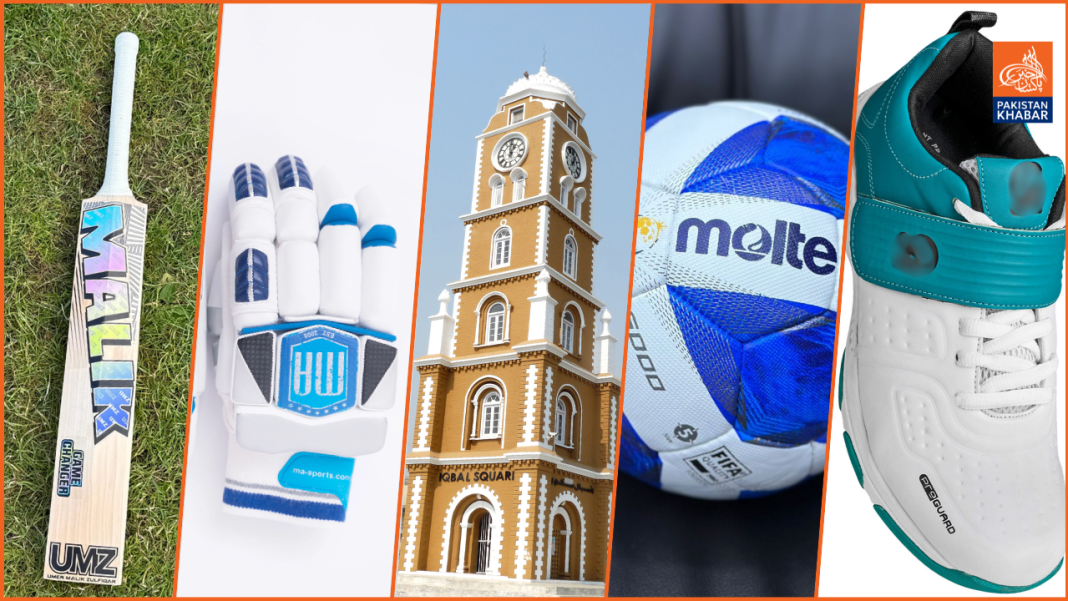Chances are Sialkot, a small city in Pakistan, had had a hand in it when you watch a football World Cup, a rugby match, or see athletes competing internationally.
For decades, Pakistani workers have silently driven the international sports business by creating some of the best sports products that transform players into champions.
The Unsung City Hidden behind Global Achievements
Sialkot, which lies in the Punjab province, makes more hand-stitched footballs than any other city worldwide. Actually, Sialkot’s employees produced more than 70% of the footballs used during the 2014 FIFA World Cup. From the construction of cricket bats, gloves, or hockey sticks to the stitching of a premium leather football, Sialkot’s labor force’s expert hands are behind it.
But the city’s work goes beyond sports.
Renowned across Europe and the United States, Sialkot’s surgical tools are used in many worldwide hospitals from their busy factories. Every thread, every carving, every polish reveals a tale of pride, tenacity, and commitment.
The Sialkot Workers’ Spirit
The success of Sialkot’s sector is based not only on big businesses but also on the pure dedication of its local workers and artists.
Precision sewing, metalworking, and leather working have been handed down through generations of families like a legacy.
In many households, Grandpa will show his grandkids the ropes of sewing or shaping a football bladder.
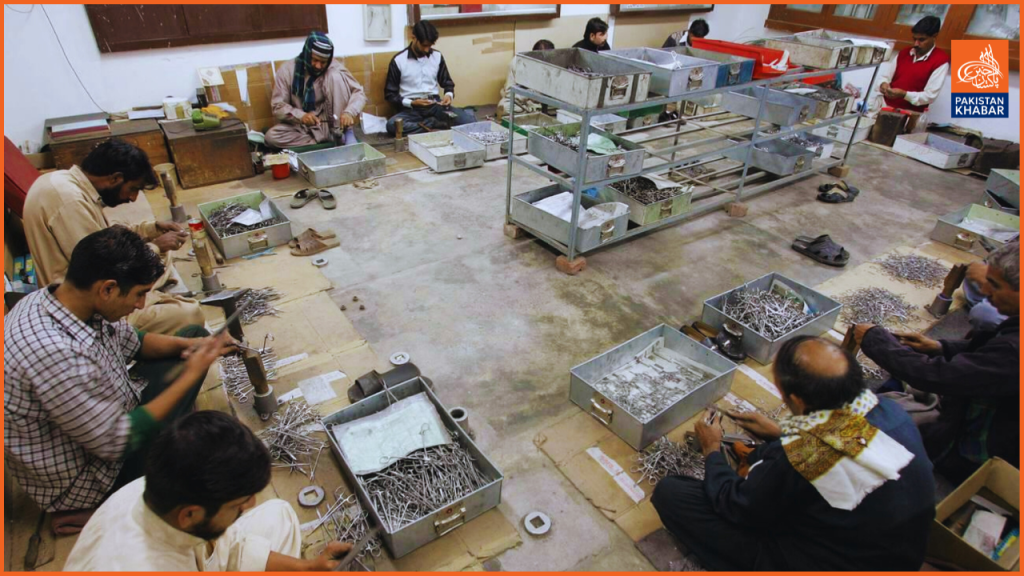
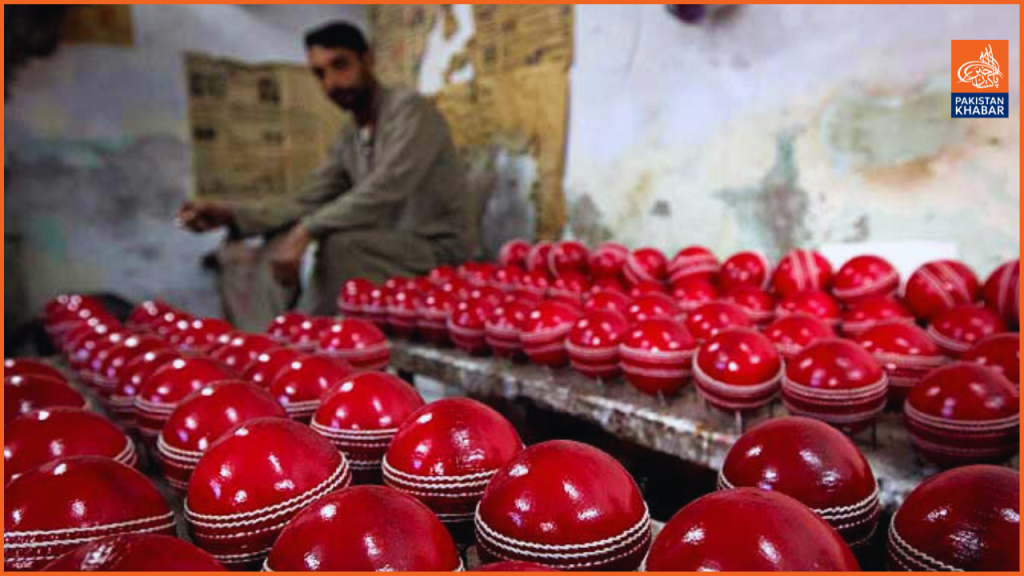
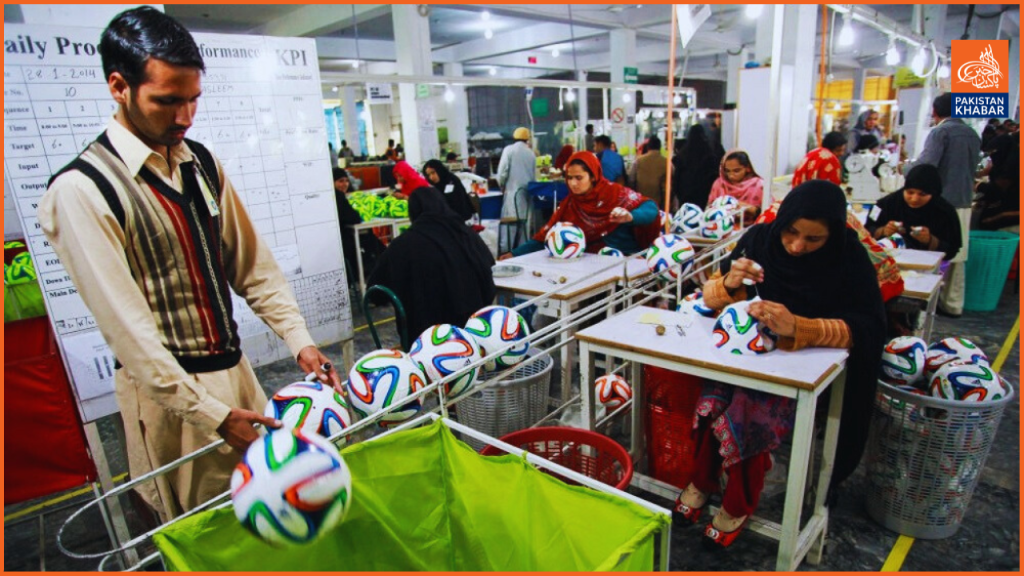
Workers begin early; some stitching almost 1,500 stitches per ball requires endurance and patience. Still, it’s done with pride since their hands help athletes all around to shape their dreams.
Global Recognition: From the FIFA to the Olympics
Sialkot’s footballs are approved by big sports companies and certified by FIFA; thus, they are not only a local phenomena. Major events have match balls produced by Sialkot-based businesses depending on big names like Adidas, Nike, and Puma.
Players kicked balls made with great accuracy by Pakistani laborers throughout the FIFA World Cup.
The “Made in Sialkot” tags on Pakistani sporting gear subtly made an appearance at the Tokyo Olympics and Rugby World Cups, conveying national pride to every arena and field.
This is an emotional idea: someone in a small house in Sialkot might have meticulously hand-stitched a ball that rolled across Europe or South America.
Beyond Football: Diverse Expertise of the City
Although footballs are the signature product of Sialkot’s industry, the city’s sports goods exports cover a much wider range:
From bats to pads, Sialkot creates cricket kits fit for both professionals and amateurs.
Top global leagues demand hockey sticks and gloves.
Nearly 30% of the world’s surgical instruments take shape in local factories here.
Every object captures the painstaking work ethic and rich quality tradition Sialkot is known for.
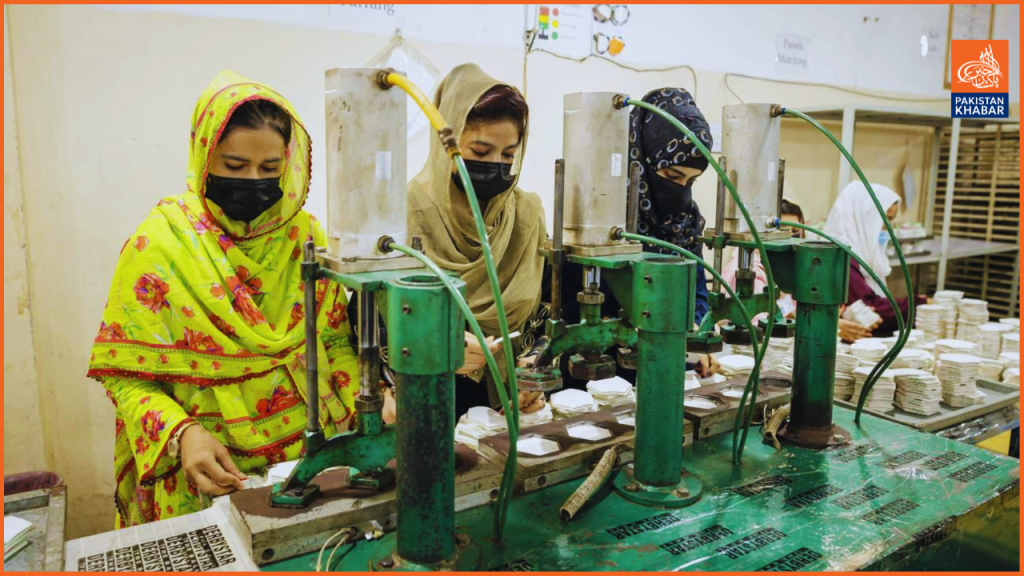
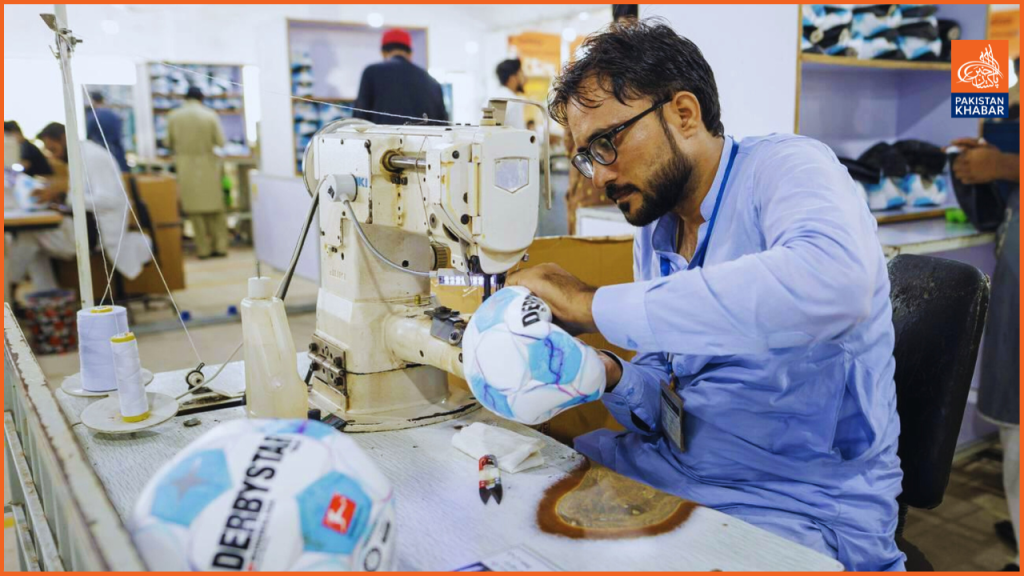
Challenges the Workers Face
Sialkot’s employees sometimes go unseen despite their worldwide renown.
Many still put in many hours under strict deadlines, sometimes without the social protections typical in other sectors.
Still, things have been improving. Several nearby companies have embraced fair labor policies, ISO certifications, and cooperative efforts guaranteeing improved pay and working conditions.
Training is also being modernized; thus, the next generation maintains the worldwide reputation of the city.
A City where Dreams are Bigger
Sialkot’s narrative is about leading rather than only about survival.
The first independent airport in Pakistan, Sialkot International Airport, was constructed by the city’s business community to boost exports.
This audacious action exactly captures the attitude of the workers and businesses: self-made, driven, and relentless.
Conclusion: More Than Just Exports—It’s Legacy
Sialkot is not merely producing goods; it is also crafting aspirations, enthusiasm, and a legacy.
Few people know that each football stitched, each bat carved, each surgical tool polished links Pakistan to the world.
Every day as well as on Labour Day, the world pays tribute to these workers whose quiet endurance drives world sportsmanship.
Next time you watch a thrilling penalty shootout or a cricket match-winning six, remember:
Behind that moment of glory, there’s a story of skilled hands from Sialkot, Pakistan.


